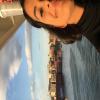March 27, 2018 - 17:09

I've been meditating on a phrase that Petra Kupper said in her introduction to Disability Culture and Community Performance - that her dance class is a "labratory for disability culture." The gathering of marginalized folks creates a microcosm of cultural ways-of-connecting (through speech, visuality and performance, art practices, and more). I find the question "what is disability culture" very difficult to answer. On the one hand, I do identify as someone on the spectrum of disability, so I should be able to answer this right? Still, in attempting to answer this question and in thinking about my ability privileges, I feel as though I have no right to state what disability culture is because I'm only experiencing it through academic study, and not necessarily personal experience. I have never been to a support group or community gathering for disabled folks. My experience with this culture is through observation, which almost feels ethnographic. Similarly, when I visit India with my mother on occassion (who is from Mumbai), I feel as though I'm an outsider observing another culture. The last time we visited, a street vendor began speaking to me in Hindi and I couldn't respond to him. In that space, I don't feel quite Indian enough. This is not a critique of the includion of disabled communities - I just simply haven't been engaged in these communities. I am privileged in that I don't necessarily look disabled, it isn't obvious to a stranger who might come up to me. When I was younger and first diagnosed with POTS (about 10 years ago), I wanted desparately to hide it. My parents encouraged me to join a virtual support group for kids with POTS through Dysautonomia International, but I preferred to pretend that I wasn't differently abled or Other.
This was a long tangent, but essentially I am thankful to writers like Kupper, Nussbaum, and Johnson who are allowing me to learn about this culture (though it feels late). Though folks in our course have varying level of ability (we aren't all able-bodied or all diasbled), I think that our course is a labratory for disability studies (culture, art, politics, and more), and I'm really enjoying it!
